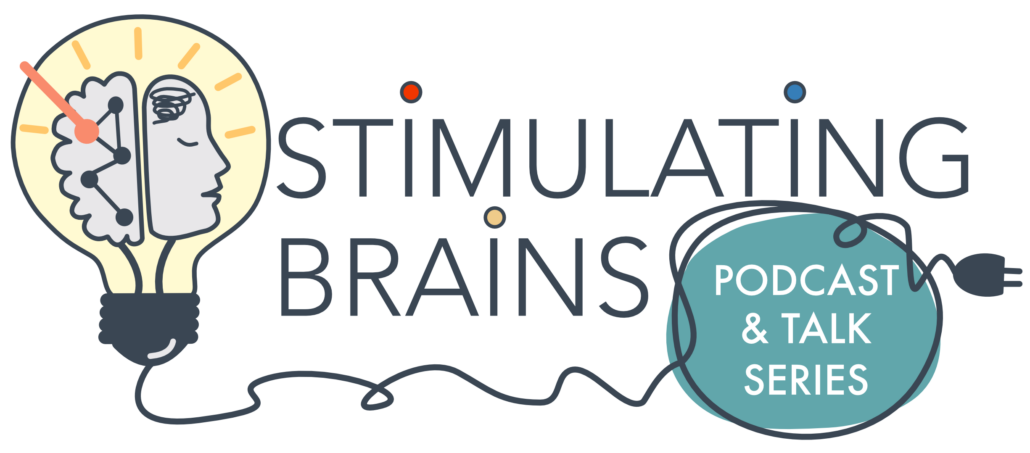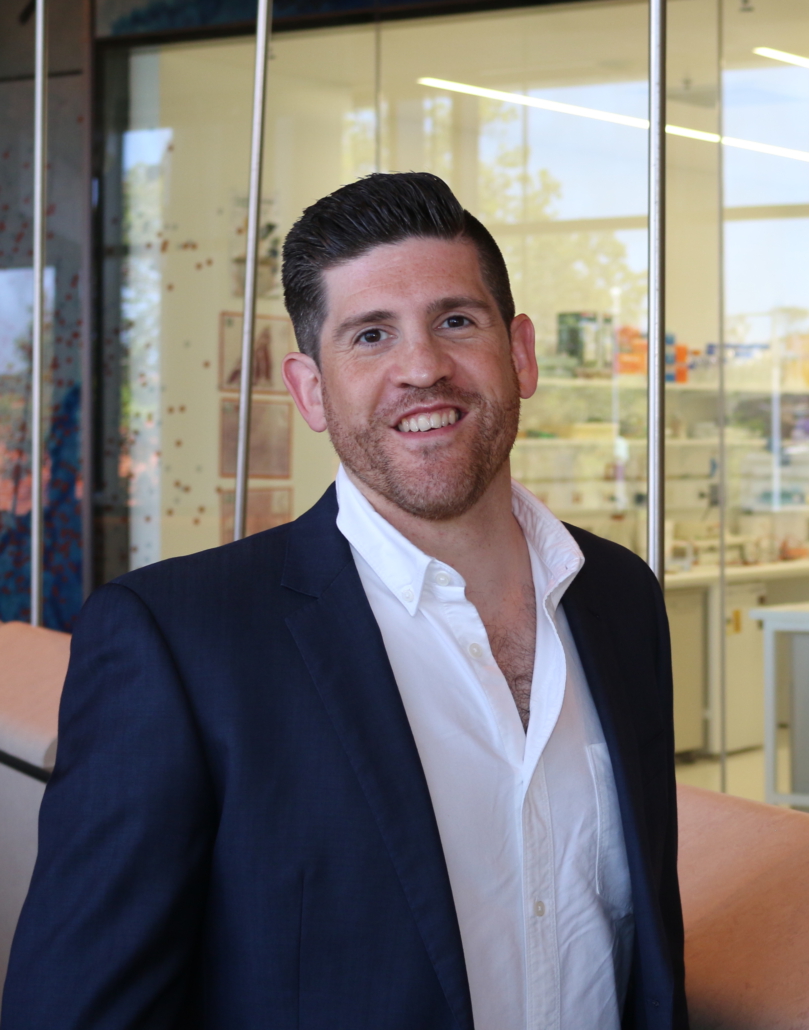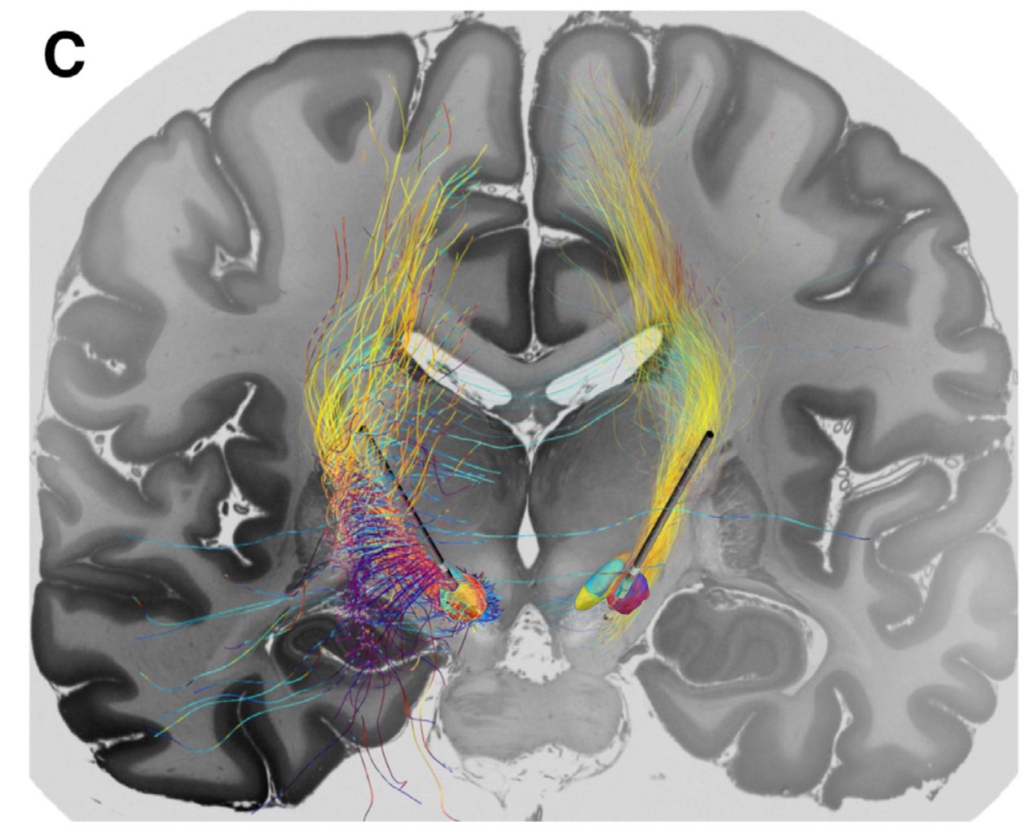Philip Mosley is an Advance Queensland early career researcher in Brisbane, Australia
#32: Philip Mosley – Neuropsychiatric network effects of DBS in Parkinson’s and OCD
It was my great pleasure to talk with Philip Mosley, who is one of the most experienced neuropsychiatrists working with DBS and published seminal work on non-motor, neuropsychiatric side-effects of subthalamic DBS in Parkinson’s Disease as well as DBS for obsessive compulsive disorder when targeting the bed nucleus of the stria terminalis. Our conversation spans many areas from public health, remarkable individual case examples, the role of caregivers in DBS surgery, whether DBS could alter your personality, to boxing, raising three kids and a fast car. Phil has published certainly among the best network DBS papers on neuropsychiatric adverse events in notable journals, involving a virtual casino paradigm and investigating what differentiated patients that struggled with impulsivity and other side-effects after surgery from the ones that don’t. After carrying out one of the few randomized clinical trials on DBS for OCD with the DBS team in Brisbane, Phil realized how critical access to this treatment option will be for some patients, so he has become active in pursuing the goal to broaden access to this treatment in Australia and beyond. After listening to the side of neurosurgeons, neurologists and psychiatrists on this podcast, I believe it is a very insightful change of perspective to hear from a neuropsychiatrist that has treated a large number of patients that underwent DBS – so I hope you enjoy this episode as much as I did the conversation with Phil!
Selected references we talked about
- The Randomized trial for OCD DBS: Mosley PE, Windels F, Morris J, Coyne T, Marsh R, Giorni A, Mohan A, Sachdev P, O’Leary E, Boschen M, Sah P, Silburn PA. A randomised, double-blind, sham-controlled trial of deep brain stimulation of the bed nucleus of the stria terminalis for treatment-resistant obsessive-compulsive disorder. Transl Psychiatry. 2021;11(1):1-17. doi:10.1038/s41398-021-01307-9
- The “Brain article” involving the virtual casino: Mosley PE, Paliwal S, Robinson K, Coyne T, Silburn P, Tittgemeyer M, Stephan KE, Perry A, Breakspear M. The structural connectivity of subthalamic deep brain stimulation correlates with impulsivity in Parkinson’s. Brain. 2020;35:5083-20. doi:10.1093/brain/awaa148
- The article investigating “cases” of neuropsychiatric side-effects following STN-DBS in Parkinson’s Disease: Mosley PE, Smith D, Coyne T, Silburn P, Breakspear M, Perry A. The site of stimulation moderates neuropsychiatric symptoms after subthalamic deep brain stimulation for Parkinson's disease. Neuroimage Clin. Published online March 2018. doi:10.1016/j.nicl.2018.03.009
- One of Phil’s attempts to make OCD-DBS more broadly available: Mosley PE, Velakoulis D, Farrand S, Marsh R, Mohan A, Castle D, Sachdev PS. Deep brain stimulation for treatment-refractory obsessive-compulsive disorder should be an accepted therapy in Australia. Aust N Z J Psychiatry. Published online July 15, 2021:00048674211031482. doi:10.1177/00048674211031482
- The report about experience from patient and caregiver perspectives: Mosley PE, Robinson K, Coyne T, Silburn P, Breakspear M, Carter A. ‘Woe Betides Anybody Who Tries to Turn me Down.’ A Qualitative Analysis of Neuropsychiatric Symptoms Following Subthalamic Deep Brain Stimulation for Parkinson’s Disease. Neuroethics. 2021;14(S1):47-63. doi:10.1007/s12152-019-09410-x
Phil’s research focuses on studying network effects of DBS in various brain disorders.
Phils car in Brisbane – among being a full-time physician scientist and dad of three, Phil likes fast cars and boxing.






